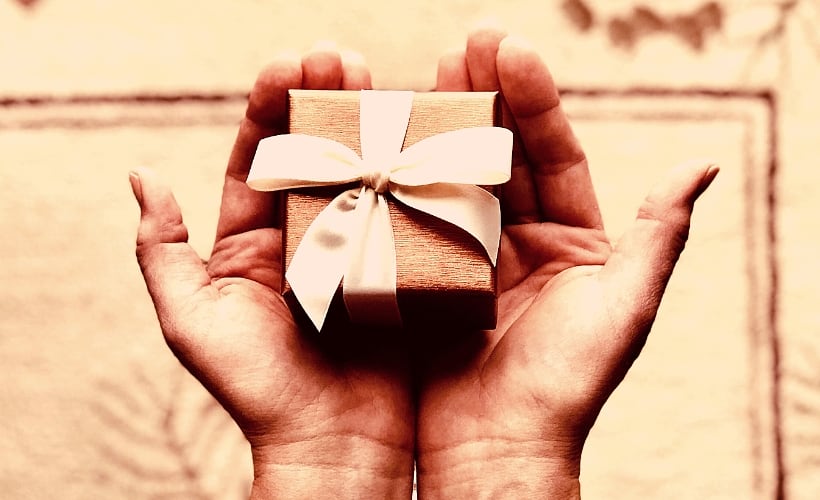
I’ve met someone new.
We met on a warm sunny morning, in a pretty cafe I’ve not tried before. Outside a couple of dogs lounged on the sidewalk while their owners drank steaming lattes. And nearby, a flock of sulphur-crested cockatoos debated the day’s business.
My New Friend
She told me she’s very busy with her small business and community work. She’s a Christian, has a bunch of kids and lives on a semi-rural property. She is reliant on tank water and is worried that if it doesn’t rain soon, she’ll need to get some delivered. She has multiple orgasms.
Nah, just kidding about the orgasms, though I hope she does.
But since the Christchurch attacks, I’ve been thinking about how we label ourselves. The need we seem to have to package ourselves in a way that makes us appealing to others.
The Labels We Give Ourselves
Why does it matter whether Katy or Toseland are Muslim, Christian, Buddhist, Hindu, Confucian? Isn’t it enough that they are human?
By giving ourselves labels, and packaging ourselves up for the consumption of others, we commoditise ourselves.
Pick Katy – she’s full of organic whole grain goodness!
NO!
Toseland’s better – he’s low in fat and high in iron.
And we make it easy for politicians, mass and social media to target and manipulate us.
Modern Mass Manipulation
One of the wonderful things about an Arts/Humanities education is that you learn critical thinking. You learn to assess the arguments of others, weigh up the value of the evidence provided and choose what seems the most reasonable and accurate explanation.
Which makes it even more difficult to live in the current cesspit of opinion masquerading as fact.
Does your local member of Parliament send you postcards encouraging you to be concerned about refugees taking your job, gangs of black youth mugging you or politicians on the other side of the hair’s breadth political divide ruining the economy? Or do they give you a vision of a bright and united version of your country?
Is your TV news full of footage of hate-fuelled violence with hysterical so-called community leaders saying hateful things about some elements of the community? Or does it provide a reasoned analysis of the day’s events?
When your social media platform suggests new “friends,” do you just accept them or do you look at their profiles to see whether you could hold a conversation with them, or trust/rely on them to pick up your kids from school or feed your cat while you are away?
And if you’re not persuaded by the presentation of these issues, have you tried to find out more by reading books or attending seminars by subject matter experts?
The Place of Virtue
I live by a set of virtues (or as others call them, values). I make purchasing decisions based on my concern for environmental sustainability, to support local business and to increase the amount of beauty in the world.
I prefer the bright vision of a united country, even though that seems increasingly unlikely. I want
And one of those choices was not to take things just because they’re free. Not to find space in my home to store and time to care for ugly useless things that didn’t fulfil a need or satisfy a want.
Which brings me to the dreaded Facebook (et al.).
After the political manipulation scandal, I allowed myself to be persuaded that my business would suffer if I deleted my account.
And Mark Zuckerberg promised to do better, so it seemed reasonable to give it another chance. And it blitzed us with feel-good advertising to reinforce that message and give themselves time.
But, looking at Christchurch again, it seems that they haven’t taken their mass market influence seriously. They haven’t gone back to basics, performed a risk management assessment, or considered how they can make the world a better place.
If I had to pay for it, I wouldn’t. I’d walk right past the newsstand.
And I can’t say I’m happy to be associated with many of the opinions I see expressed there.
Finale
So by the time you read this I’ll be dead.
No in fact, but on Facebook. My account will be deleted. Which for some is as good as being dead.
Despite it seemingly being good for business. (Here’s how to get in touch without it).
In a way, it’s duplicitous of me, because they own Instagram and I’m leaving that account open for the moment.
Plus I’m staying on Amazon-owned goodreads even though the ads drive me crazy. And on Expedia owned TripAdvisor as well. At least for the time being.
Have you thought about how your labels are defining your life? Are you allowing yourself to be associated with ideas and actions you don’t condone? Are you being dragged further into the cesspit of ugliness?
Postscript
While I’m thinking about labels, just because I call myself a dog-magnet, doesn’t mean I don’t like cats. It’s just more dogs amble over to say hello than cats. Perhaps because you don’t see many cats outside people’s houses.
Leave a Reply